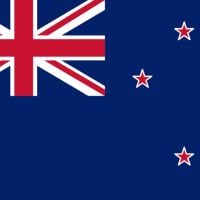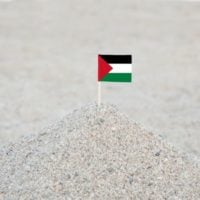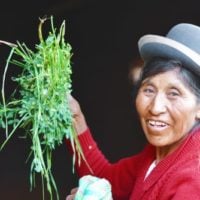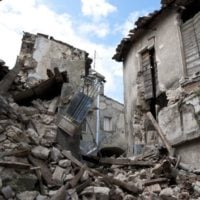Deadline: 15-Jan-24
IOM is looking to partner with national non-governmental organizations (NNGOs) with documented experience in implementing GBV programming, predominately for GBV response activities in Sudan-crisis affected or otherwise under-served areas, including but not limited to Northern Bhar el Ghazal State (Majokinthiu border point and Aweil Centre) and Unity State (Rotriak).
IOM is planning to strengthen GBV response programming in areas affected by the Sudan crisis and areas otherwise under-served where there is currently no GBV response services available.
IOM’s aim through this partnership is that the selected partners will be able to provide quality GBV services that meet the needs of survivors and will be able to facilitate community-led GBV awareness raising activities.
In close coordination with the GBV AoR, IOM aims to increase access to safe, equitable and adequate GBV response services in crisis-affected locations and underserved areas. The programme aims to contribute to increased understanding and to respond to the health, psychosocial and basic needs of those affected in locations currently lacking comprehensive GBV response services.
Objective
- The overall objective of this partnership is to increase access to safe, equitable and adequate GBV services in disaster affected locations of Northern Bahr el Gazel state through responding to, mitigating and preventing Gender-based Violence (GBV).
Sector(s) and area(s) of specialization
- Protection Cluster, Gender-Based Violence Area of Responsibility (AoR)
Proposed Timeline
- 1 March 2024 – 31 December 2024
Proposed Interventions
- Outcome 1 – Improved access to GBV response services in underserved locations
- Output 1.1: GBV case management and PSS services are provided to conflict-affected populations.
- Output 1.2: Service access for GBV survivors is catchment area / target area provided
- Activities:
- Conduct service mapping, protection assessments and multi-sectoral safety audits in targeted areas to identify gaps in addressing GBV through response, mitigation and prevention actions.
- Operate and, if not already existing, establish a new women and girls’ friendly spaces (WGFS) according to technical guidelines;
- Provide GBV case management and focused non-specialized services (counselling, referrals) to conflict-affected women and girls according to technical standards, ensuring access and response for women with disabilities and other marginalized groups.
- Provide individual protection assistance, via IOM South Sudan’s standard operating procedures, to persons with complex protection needs, including GBV survivors, as part of case management.
- Establish PSS activities and support groups led by trained facilitators, including lifeskills sessions utilizing approved curriculum;
- Train GBV outreach staff on GBV response messages and facilitation techniques, and attitudes that support GBV guiding principles and the rights of GBV survivors;
- Conduct trainings for other service providers on Protection, GBV minimum standards and GBV risk mitigation, and Disability Inclusion, and on GBV disclosure and referrals.
- Outcome 2 – Positive changes in attitudes supportive of GBV guiding principles, the rights of GBV survivors and enhanced awareness and help-seeking behaviours among survivors at at-risk groups
- Output 2.1: Targeted community and women and girls have an understanding of GBV and SEA, available services
- Activities:
- Conduct women’s empowerment and leadership trainings to ensure women’s participation
- Identify and train staff and community members in attitudes supportive of GBV guiding principles and the rights of GBV survivors, GBV prevention awareness and facilitation approaches
- Conduct GBV awareness at the community and household level and ensuring communications outreach to people with disabilities, including through engaging their formal and informal associations and are adapted for inclusivity.
- Cross cutting:
- Output 3.1: Accessible complaints and feedback mechanism are established and promoted
- Activities:
- Raise awareness on PSEA and available reporting channels
- Establish complaints and feedback mechanism based on preference of local community
- Implement activities and measures reiterating the organizations zero-tolerance for SEA
Overarching Outcomes
- Outcome 1 – Improved access to GBV response services in underserved locations
- Outcome 2 – Positive changes in attitudes supportive of GBV guiding principles, the rights of GBV survivors and enhanced awareness and help-seeking behaviours among survivors at at-risk groups
Expected Results
- Output 1.1: GBV case management and PSS services are provided to conflict-affected populations.
- Output 1.2: Service access for GBV survivors is catchment area / target area provided
- Output 2.1: Targeted community and women and girls have an understanding of GBV and SEA, available services
- Output 3.1 Accessible complaints and feedback mechanism are established and promoted
Locations
- Majokinthiu and Aweil Centre, Northern Bahr el Ghazal State;
- Rotriak, Unity State;
- Other location/s in South Sudan receiving high numbers of returnees from Sudan;
- Other crisis-affected and underserved locations where there are currently no comprehensive GBV response services available
Eligibility Criteria
- Required:
- National NGO (NNGO) working on peace building, human rights and protection in targeted area
- NNGO that is legally registered in South Sudan.
- Completed the application requirements.
- Can demonstrate existing footprint and proven past or current experience in GBV programming.
- Has been operational in the location of interest for at least 2 years.
- Desirable:
- Has available funding for programming for at least 6 months and demonstrates the ability to raise funds after the partnership comes to an end.
- Clearly explains how the project activities are tailored to the context and respond to the identified needs in the location.
For more information, visit IOM.







































